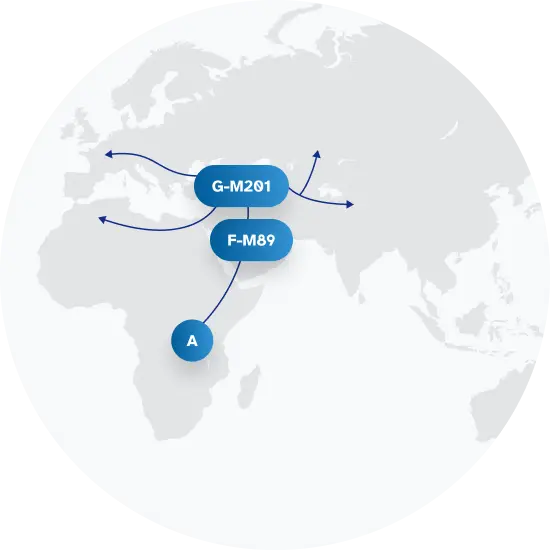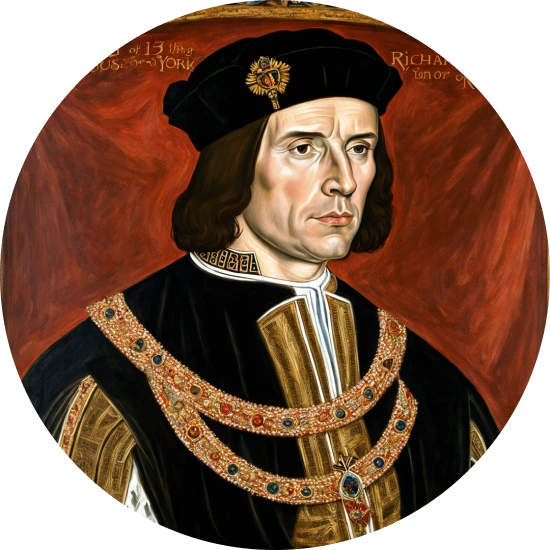Explore the Family Name Kantor
How common is the last name Kantor in the United States?
Based on the Decennial U.S. Census data, the popularity of the surname Kantor has seen subtle changes between 2000 and 2010. In 2000, Kantor was ranked 8044 while in 2010 its rank slightly dropped to 8322, showing a decrease of 3.46%. However, the total count of people with this surname increased from 3802 to 3982, marking a rise of 4.73%. The proportion per 100k also saw a minor decline of 4.26%, going from 1.41 in 2000 to 1.35 in 2010.
| 2000 | 2010 | Change | |
|---|---|---|---|
| Rank | #8,044 | #8,322 | -3.46% |
| Count | 3,802 | 3,982 | 4.73% |
| Proportion per 100k | 1.41 | 1.35 | -4.26% |
Race and Ethnicity of people with the last name Kantor
As for the ethnicity associated with the surname Kantor, the Decennial U.S. Census data shows some notable shifts over the 2000-2010 period. While the majority of people with this surname identify as White (95.20% in 2010), there was a slight decrease of 1.40% compared to the year 2000. Conversely, those identifying as Hispanic saw a significant increase by 75.22% although the overall percentage remains relatively low at 1.98%. The number of individuals identifying as Asian/Pacific Islander also rose from 0.66% to 1.10%, indicating a change of 66.67%. The proportion of Kantors who identify with two or more races showed a minor increase of 4.85%. Unfortunately, the percentages for Black and American Indian and Alaskan Native were suppressed for privacy reasons in 2010.
| 2000 | 2010 | Change | |
|---|---|---|---|
| White | 96.55% | 95.2% | -1.4% |
| Hispanic | 1.13% | 1.98% | 75.22% |
| Asian/Pacific Islander | 0.66% | 1.1% | 66.67% |
| Two or More Races | 1.03% | 1.08% | 4.85% |
| Black | 0.39% | 0% | 0% |
| American Indian and Alaskan Native | 0.24% | 0% | 0% |
Kantor ancestry composition
23andMe computes an ancestry breakdown for each customer. People may have ancestry from just one population or they may have ancestry from several populations. The most commonly-observed ancestry found in people with the surname Kantor is Ashkenazi Jewish, which comprises 42.0% of all ancestry found in people with the surname. The next two most common ancestries are British & Irish (18.8%) and Eastern European (14.3%). Additional ancestries include French & German, Italian, Scandinavian, Spanish & Portuguese, and Greek & Balkan.
Ready to learn more about your ancestry? Get the most comprehensive ancestry breakdown on the market by taking our DNA test. Shop 23andMe
| ANCESTRY BREAKDOWN | COMPOSITION |
|---|---|
| Ashkenazi Jewish | 42.0% |
| British & Irish | 18.8% |
| Eastern European | 14.3% |
| Other | 24.9% |

Possible origins of the surname Kantor
Your DNA provides clues about where your recent ancestors may have lived. Having many distant relatives in the same location suggests that you may all share common ancestry there. Locations with many distant relatives can also be places where people have migrated recently, such as large cities. If a large number of individuals who share your surname have distant relatives in a specific area, it could indicate a connection between your surname and that location, stemming from either recent ancestral ties or migration.
Based on 23andMe data, people with last name Kantor have recent ancestry locations in the United Kingdom of Great Britain and Northern Ireland and Ireland.
| RECENT ANCESTRY Location | Percentage |
|---|---|
| Glasgow City, United Kingdom | 39.70% |
| West Midlands, United Kingdom | 39.70% |
| Greater London, United Kingdom | 39.70% |
| Greater Manchester, United Kingdom | 39.70% |
| Merseyside, United Kingdom | 39.70% |
What Kantor haplogroups can tell you
Haplogroups are genetic population groups that share a common ancestor on either your paternal or maternal line. These paternal and maternal haplogroups shed light on your genetic ancestry and help tell the story of your family.
The top paternal haplogroup of people with the surname Kantor is G-P287, which is predominantly found among people with European ancestry. Haplogroup G-P287 is descended from haplogroup G-M201. Other common haplogroups include J-CTS5368 and E-L29, which are predominantly found among people with European and European ancestry. Other surnames with similar common haplogroups are: Sussman, Lerner, Wiener, Kushner, Feldman, Nathan, Moskowitz, Schwartz, Stern, Freedman.
The most common maternal haplogroups of people with Kantor surname are: H1, N, H. These most commonly trace back to individuals of European ancestry.
 Paternal Haplogroup Origins G-M201
Paternal Haplogroup Origins G-M201
Your paternal lineage may be linked to Richard III
The much-maligned English Monarch, King Richard III, died in the Battle of Bosworth Field in 1485 — likely the result of a severe blow to the back of his head. Richard's body was buried in a friary church in Leicester, but the structure was demolished less than 100 years later thanks to the dissolution of the Catholic Church in England, and many thought his skeleton lost to time. But, in 2012, a team of researchers decided to launch a hunt for the monarch's remains. On the first day of excavations, archaeologists uncovered a human skeleton with signs of scoliosis and severe head wounds, which matched descriptions of the English King. To confirm his identity, scientists compared the skeleton's paternal haplogroup, haplogroup G-P287, to the Y-chromosomes of living, paternal-line descendants of Richard's great-great-grandfather, King Edward III. But, there was a mismatch, suggesting that if the skeleton did indeed belong to Richard III, there must have been at least one instance of false-paternity in the 19-plus generations separating King Edward III from his living descendants. However, the scientists also tested Richard's mitochondrial DNA, and found an exact match with a documented matrilineal descendant of Richard's sister, Anne of York. In early 2013, the University of Leicester announced that — beyond any reasonable doubt — the skeleton belonged to Richard. Richard III's paternal lineage belongs to the G-P287 (G2) branch of haplogroup G-M201 (G).
Your maternal lineage may be linked to Marie Antoinette
Because it is so dominant in the general European population, haplogroup H also appears quite frequently in the continent's royal houses. Marie Antoinette, an Austrian Hapsburg who married into the French royal family, inherited the haplogroup from her maternal ancestors. So did Prince Philip, Duke of Edinburgh, whose recorded genealogy traces his female line to Bavaria. Scientists also discovered that famed 16th century astronomer Nicolaus Copernicus traced his maternal lineages to haplogroup H.

What do people with the surname Kantor have in common?
Spoiler alert: it's complicated. People with the same last name are usually no more genetically similar than a randomly sampled group of people from the same population. That said, people with the same surname are more likely to have similar ancestries than randomly sampled individuals. The reason is the tendency of people with similar cultural or geographical backgrounds to preferentially mate with one another. That's why people who share a surname may be more likely to share traits and tendencies in common than people within the general population. Check out the percentages below to see the prevalences of tastes, habits, and traits of people with your surname compared with prevalences among 23andMe users.
Preferences
Traits
Habits
Wellness
Are health conditions linked to the last name Kantor?
The short answer is that, if there is an association between surname and health, it's usually more about your ancestry than your name. Individuals with a given surname are no more genetically similar than the general population but often have similar ancestries. The populations of people associated with those shared ancestries often have sets of genetic variations, also known as alleles, in common. Some of those alleles are associated with a greater likelihood of developing certain diseases.
Disease variant frequency by ancestry
Disease allele frequencies in populations associated with the surname Kantor are shown below. Important Note: not everyone with a disease allele will develop these health condition


















